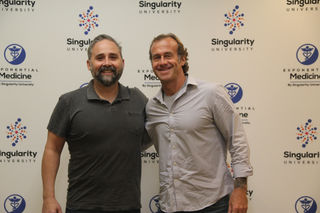Leadership
Top 5 Tips from Navy SEALs on Exceptional Leadership
Are Navy SEALs born or made?
Posted November 12, 2018 Reviewed by Jessica Schrader

Extreme adversity, obstacles, and unexpected hurdles happen to everyone. How you think and act in the face of seemingly impossible challenges and uncertainty reveals your core character and separates good from exceptional leaders. The U.S. Navy SEALs (Sea, Air, and Land Teams) are legendary for being among the toughest of the tough. Only a tiny elite fraction pass the extreme mental and physical training requisites for Navy SEAL Special Operations forces.
Can you control your emotions and actions, regardless of how difficult the circumstances are? Do you make excuses or are constantly finding ways to solve problems? Are you a person of the highest integrity, honor, and courage? Is your word truly your bond? Do you give up easily, or do you persist without ever giving up until you find innovative ways to achieve goals? When you do achieve a big goal, do you rest on your laurels and past accomplishments, or do you have the discipline, drive, humility, and self-awareness to continue to seek self-improvement?
Not everyone can become a Navy SEAL. However, anyone, including psychologists, CEOs, athletes, startup entrepreneurs, crisis counselors, mental health professionals, business executives, neurosurgeons, emergency room physicians, first responders, and even stay-at-home parents can benefit by applying insights from Navy SEAL leadership when facing extremely challenging problems.
Jason Tuschen, CEO of RANDORI INC, is a recently retired Navy SEAL with 27 years of military and Special Operations experience leading high-performance teams in complex, dynamic and high-risk environments. He has served as the Command Master Chief of Naval Special Warfare Group ONE, a 2,000-person organization. Tuschen co-founded RANDORI INC with fellow Navy SEAL Jason L. Torey, who is the company’s chief operating officer. Torey, a Fellow of The Honor Foundation, has earned both an MBA and a Master of Science and is a doctoral student in executive leadership. RANDORI INC is a San Diego-based company that provides consulting, mentorship, public speaking, talent connection, and executive communication services, based on more than 50 years of combined combat-tested, proven Navy SEAL leadership experience. Together they recently spoke on leadership at the Exponential Medicine conference in San Diego, California. Here is a summary of a few of their insights that can benefit anyone seeking leadership excellence, not just elite warriors.
1. Use Emotional Intelligence
People with high emotional intelligence tend to exhibit greater leadership skills and better mental health. Develop a high level of intuition and self-awareness based on your strengths, weaknesses, motivation, values, and drive. Engage with people no matter what their levels are. Take the time to get to know people and build a genuine relationship. Be empathetic and consider other people’s feelings when communicating and making decisions. It’s hard to develop, but if people respect and trust you, they will follow you. Once you’ve earned their trust, you can never break that trust.
2. Separate passion from emotion
Regulate your emotions. This means finding ways to control or redirect any emotions that can interfere with your focus on obtaining your goal. Separating your passion from emotion does not imply indifference. Don’t be indifferent.
3. Master fear with preparation
First seek to master the basics, then always be anticipating what could go wrong. For each scenario on what could go wrong, have a plan of action for each scenario. Focus on the task, everything else is a distraction. Trust in your training and preparation. Stay focused on your overall goal and recognize that distracting emotions are just noise.
4. To be a good leader, be a good follower
Great leaders are humble. Lead with humility. Have an open mind. Be introspective and reflective. To be a good leader, be a good follower. A good follower is not a blind follower. A good follower seeks to understand the “Why” of a mission or goal. It’s not the same a questioning authority. It is about gathering information and forming an understanding of what the purpose of the mission is, and the required actions to reach the goal. When you become the “why,” because you inspire your team and they believe in you, that’s authentic leadership.
5. Don’t get comfortable.
People tend to be risk-averse and seek comfort. Don’t get comfortable. Instead, seek out the toughest challenges. Find ways to continually expand your limits and improve yourself. At the end of a project, analyze all aspects of what could have been done better. Learn from your mistakes. If you find that things are easy, and you are no longer growing, it’s time to move on and seek out greater challenges.


